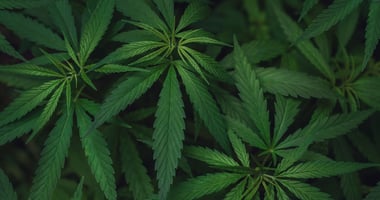Cannabis Use Disorder Associated With Increased Risk of Bipolar Disorder, Depression

Cannabis use disorder appears to be independently associated with an increased risk of bipolar disorder and unipolar depression, according to a report in JAMA Psychiatry.
“Cannabis use is increasing worldwide and is suspected to be associated with increased risk of psychiatric disorders,” wrote Oskar Hougaard Jefsen, M.D., of Aarhus University Hospital–Psychiatry in Denmark and colleagues. To better understand the relationship between cannabis use and mood disorders, Jefsen and colleagues studied data collected in several Danish registries.
The study included individuals who were at least 16 years old and living in Denmark at some point between January 1, 1995, and December 31, 2021. All individuals included in the study were followed up until they were diagnosed with an affective disorder; they developed schizophrenia, died, or emigrated; or the end of data collection on May 3, 2022. In addition to identifying individuals who had received a diagnosis for cannabis use disorder, the researchers examined data on their sex, age, history of other psychiatric disorders, and more.
Of the 6,651,765 individuals who were included in the analysis, 60,696 received a diagnosis of cannabis use disorder during the follow-up period and 260,746 developed an affective disorder, Jefsen and colleagues reported.
After adjusting for a variety of factors, including a diagnosis of a psychiatric disorder prior to a cannabis use disorder diagnosis, the researchers found that those with cannabis use disorder had a higher risk of subsequent unipolar depression (HR, 1.72), including both psychotic and nonpsychotic subtypes (HR, 1.87 and 1.71, respectively). Similarly, cannabis use disorder was associated with a higher risk of both nonpsychotic bipolar disorder (HR, 2.79 for men and 2.50 for women) and psychotic bipolar disorder (HR, 4.04, both sexes combined).
“Although excess risks of unipolar depression and bipolar disorder were highest immediately after diagnosis of [cannabis use disorder], they remained significantly elevated up to 5 to 10 years after [cannabis use disorder],”Jefsen and colleagues wrote.
They continued, “Our findings lend support to the notion that cannabis use may represent an independent factor associated with unipolar depression and bipolar disorder. The risk of psychiatric disorders appears to be higher for schizophrenia than for affective disorders and higher for psychotic bipolar disorder than for nonpsychotic bipolar disorder, potentially pointing to a primarily psychotogenic effect of cannabis.”
For related information, see the Psychiatric News article “Study Links Long-Term Cannabis Use, Cognitive Deficits.”
(Image: iStock/IURII BUKHTA)





